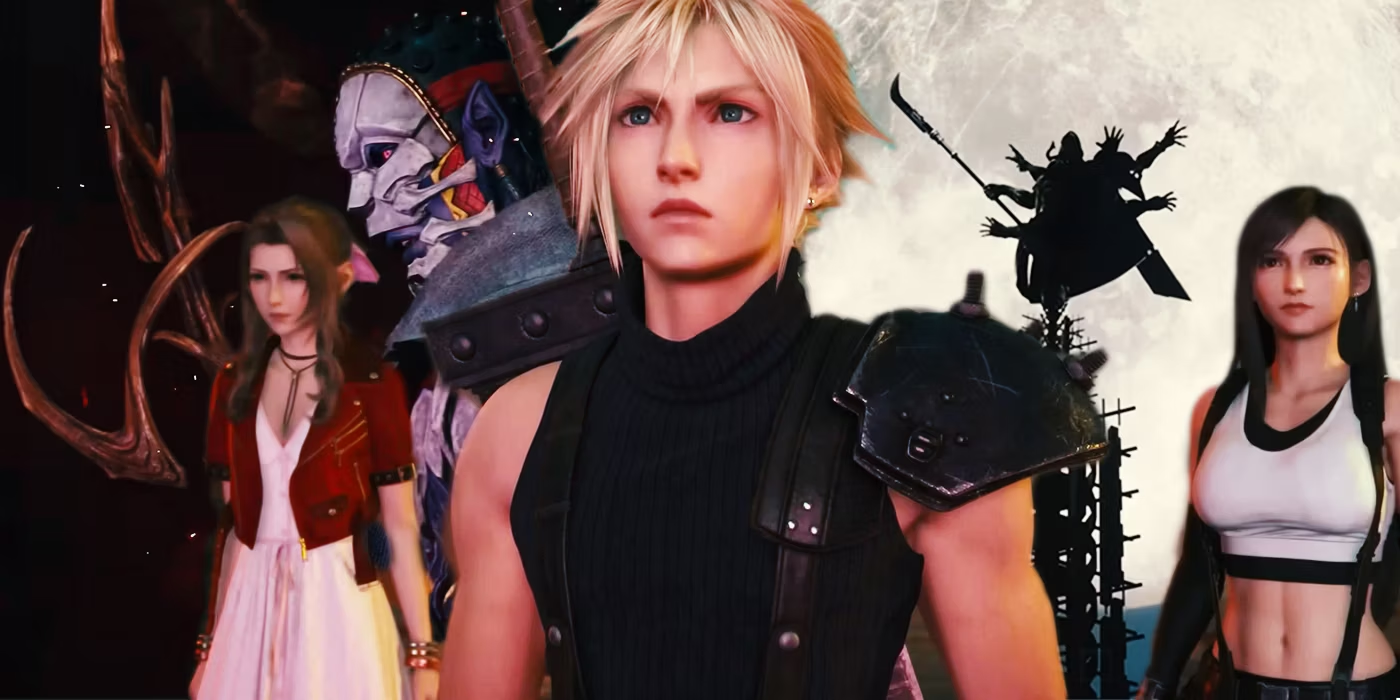How did Final Fantasy 7 capture so much humanity?
In one of the early scenes of Final Fantasy 7, a poignant flashback shows two children, Cloud and Tifa, making a promise by their village well under the starry sky. This moment is beautifully contrasted with the heart-wrenching scene of Elmyra, who mourns her husband’s death from war at her kitchen table. The narrative immerses players in the emotional struggles of characters like Barret and Dyne, who confront their shared trauma in prison. These glimpses of despair and hope are interwoven with tender moments, such as a serene gondola ride where Cloud and Aerith share a meaningful connection, highlighting the intricacies of human relationships and emotions.
The game is well-known for its impactful storytelling, including the shocking death of a beloved character, which resonates deeply with players. Tetsuya Nomura, the character and battle visual director, aimed to convey the profound feelings of pain and loss through this pivotal event. For many, including those who experienced it at a young age, the emotional weight of these moments became a defining aspect of the game’s legacy.
Final Fantasy 7, developed by Square, remains a masterpiece that showcases one of the best examples of unreliable narration in video gaming. The music enhances the emotional landscape of the game, with tracks like ‘Flowers Blooming in the Church’ evoking tenderness, while ‘Still More Fighting’ energizes players during moments of conflict. The richly detailed pre-rendered backgrounds, from the warm atmosphere of Costa del Sol to the autumnal hues of Cosmo Canyon, further immerse players in a world that feels alive and emotionally resonant.
Character development is another cornerstone of the game’s emotional depth. Cloud grapples with a dark inner turmoil, Tifa embodies sweetness tinged with secrecy, and Aerith radiates charm and recklessness. James Ohlen, a prominent figure in game design, noted that the characters in Final Fantasy 7 were more compelling compared to others of the time, inspiring improvements in character development in subsequent games like Baldur’s Gate.
The announcement of a remake in 2015 sparked mixed emotions among fans. While some embraced the opportunity to revisit the beloved story, others feared that a modern reinterpretation could overshadow the original’s legacy. Kazushige Nojima, the scenario writer for both the original and the remake, shared concerns about how a more explicit narrative might limit players’ imaginations and interpretations of the characters and storyline. The original game allowed for personal interpretations, which fostered deep connections among fans.
The original game also featured optional content that could significantly alter players’ understanding of the narrative. For example, players might miss crucial backstory about Aerith or emotional flashbacks between Cloud and Zack. The interactions and relationships players experience can vary greatly, depending on choices made throughout the game, leading to diverse interpretations of the story. The developers of the remake have taken bold steps to explore new narrative avenues while replicating the essence of the original. Changes, such as Sephiroth appearing earlier in the story, alter the suspenseful buildup that was a hallmark of the original experience.
While some fans may be divided over these changes, the remake introduces enhancements that amplify character interactions and relationships. The remade characters are vividly detailed, offering new layers to their personalities and story arcs, which resonate with both long-time fans and newcomers alike.
As the anniversary of the original game’s release passes, nostalgia intertwines with the anticipation of the remake’s unfolding narrative. The emotional journey that began decades ago continues to hold significance for players, who reflect on their experiences and the impactful moments that shaped their love for gaming. The journey through Final Fantasy 7 has become a metaphorical train ride, where players are compelled to see their experiences through to the end, no matter what awaits them.
Ultimately, the humanity conveyed in Final Fantasy 7, through its characters, storytelling, and emotional depth, remains a powerful testament to the game’s enduring legacy and its ability to resonate with players across generations.






























Post Comment